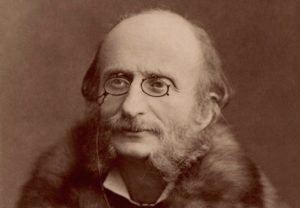
Offenbach The Cellist and Virtuoso In His Operatic ‘Concerto Militaire’
By Francisco SalazarOffenbach is regarded as one of the greatest operetta composers of his generation and is also recognized for his masterwork “Les Contes D’Hoffman.” His vocal writing is beloved and singers love performing his work.
However, for most, his orchestral work and solo work often gets overlooked. One such example is his cello concerto. Let’s not forget that this master composer was a cello virtuoso and he famously played for the opera-comique and he would go on to tour as a cellist with many of the prominent musicians of the time. Although his aspirations were always to compose for the stage, Offenbach did have many incredible cello works that today are often ignored.
In celebration of his birthday, OperaWire looks at the famous cello concerto that today remains in obscurity thanks to its length and difficulty.
Grand Cello Concerto aka “Concerto Militaire”
Sited as one of the most difficult in the cello concertos in the canon, it’s a work that has seen many arrangements. In fact, Offenbach performed the first movements in 1847 but it is unknown if he ever performed the final movement. The only documented performance of the complete concerto happened in 1848. However, after that, it fell into obscurity. Thanks to the composer’s grandson, manuscripts were uncovered and Jean-Max Clement put together a new edition based on piano sketches orchestrating it and cutting parts from the first movement he deemed too difficult. The version that Clement eventually prepared was seen as uneven and incomplete. In fact, that third movement for many years was seen as the Concerto Rondo. That of course was erroneous. Thanks to new manuscripts found in Washington and other archives, the full concerto was recovered and recorded in a new edition in 2006 Jerome Pernoo. There are various recordings of the 30-minute version but that version fails to evoke the “militaire” aspect of the concerto which Offenbach intended for the work.
The concerto exploits the complete range of the cello and showcases a playful Offenbach as well as a melancholic, sad and energetic composer. One sees the cellist move from incredibly melodic lines to arpeggios to double-stops, octaves and then to syncopated lines. Then, of course, Offenbach asks the cellist to rise to the extremes of the instrument and at the end, the cellist gets a chance to showcase its skills with a cadenza. But what always remains in these virtuoso passages is the vocal line. One hears a resemblance to the vocal line that would soon come in his operettas and opera.
Happy Listening!


